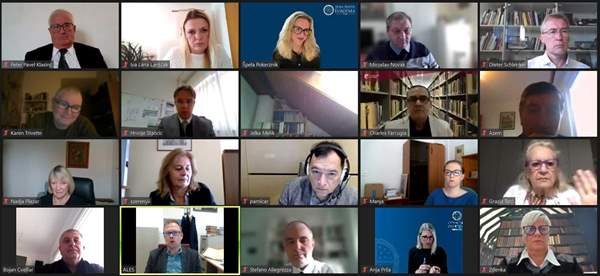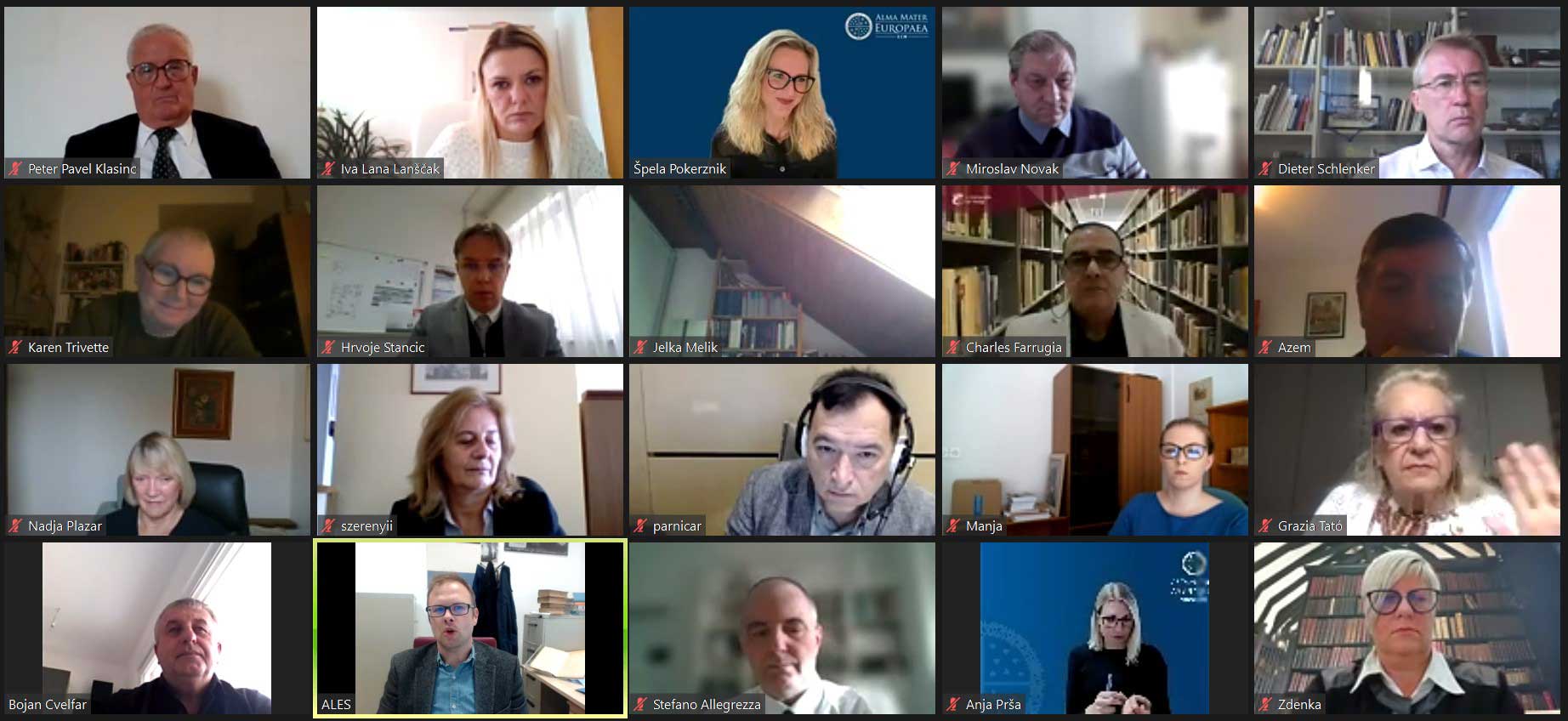
Archivists on the role of archives in shaping collective memory

The Department of Archives of the Alma Mater Europaea – ECM, in co-organization with the International Institute of Archival Sciences Trieste/Italy – Maribor/Slovenia, the State Archives in Trieste, the University of Maribor and the Agency for Research Activities of the Republic of Slovenia, successfully held the 32nd Conference International Archival Day, which took place on October 10 and 11, 2022.
The conference addressed questions about the role of archives in forming collective memory in connection with archival science and cooperation at the national and international levels. "Archives are and will keep the memories of nations, which are connected at the national level and are reflected more broadly in various projects. "Archives are and will keep the memories of nations, which are connected at the national level and are reflected more broadly in various projects. The popularization of archives, archival science, theory, and practice is the obligation of all archives and archivists, and all those people who play an important role in ensuring the quality work of institutions and researchers," emphasizes Peter Pavel Klasinc, director of the International Institute of Archival Sciences Trieste/Maribor and head of the Archival studies programs at Alma Mater Europaea - ECM. He adds that the fate of archives as independent historical, educational, research, pedagogical and cultural institutions is different.
"A worldwide review would show significant differences between archives regarding their positions and tasks. What they all have in common, regardless of name and status, is the activity of collecting or acquiring, storing, and preservation of archival material as the cultural heritage of an individual nation or nationality. Their role in the international arena is also crucial," points out Klasinc and adds that the desire for continuous improvement in archival science is also significant.
"The conversion of existing archival material into digital form represents the next development stage, which enables the modification, transfer, and processing of this material using software, artificial intelligence, and blockchain technology for the future progress and development of archival science and general archival theory and practice. I am convinced that the new information science, as it already is, will change the view of the existing archival material and the countless possibilities such technology offers," concludes Klasinc.
The conference was attended by 16 countries, whose representatives, established scientists, and archival experts, presented 40 contributions, which will also be published in Atlanti+, a scientific journal for contemporary archival theory and practice.
